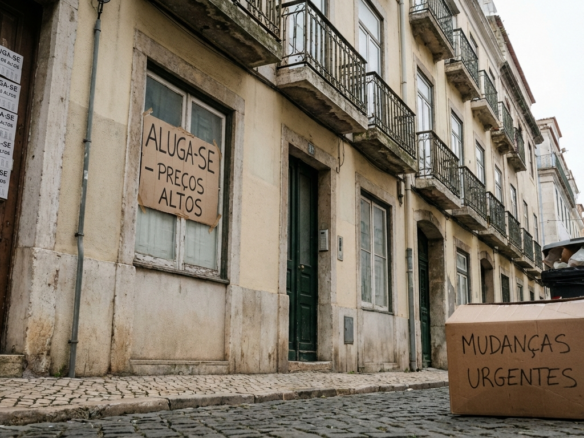The Swiss real estate landscape is poised for significant developments as we approach the second half of 2025. With evolving economic conditions, shifting demographic patterns, and ongoing regulatory adjustments, property markets across Switzerland are experiencing a period of cautious optimism mixed with strategic recalibration.
Get 50% OFF!
Subscribe to our newsletter and enjoy a 50% discount on all listing packages, no strings attached!

Market Trends Shaping Swiss Property in 2H 2025
The Swiss property market is experiencing a notable shift toward sustainability and energy efficiency, with buyers increasingly prioritizing properties that meet stringent environmental standards. This trend is particularly pronounced in urban centers like Zurich and Geneva, where new construction projects must comply with enhanced energy performance requirements. The demand for smart home technologies and renewable energy systems has become a decisive factor in property valuations.
Population growth continues to drive housing demand, particularly in the Greater Zurich area and along the Lake Geneva region. However, the market is showing signs of maturation, with transaction volumes stabilizing after years of rapid growth. Foreign investment remains robust, though new regulations governing non-resident property purchases are creating more selective buyer behavior. The luxury segment maintains its resilience, supported by Switzerland’s continued appeal as a safe haven for international wealth.
Interest Rate Impact on Real Estate Demand
The Swiss National Bank’s monetary policy stance is creating ripple effects throughout the property sector, with mortgage rates remaining at historically attractive levels despite global inflationary pressures. This environment continues to support homebuying activity, though lending institutions are maintaining strict affordability criteria. The 10% down payment requirement for primary residences remains a significant threshold for first-time buyers, particularly in high-cost urban markets.
Commercial real estate financing is experiencing increased scrutiny from lenders, who are demanding higher equity contributions and more detailed cash flow projections. Despite these tightened conditions, the overall cost of capital remains favorable for well-positioned investors. Variable rate mortgages are gaining popularity as borrowers seek flexibility in an uncertain interest rate environment, while fixed-rate products continue to dominate the residential market.
Regional Price Variations Across Switzerland
Zurich maintains its position as Switzerland’s most expensive property market, with average prices for single-family homes exceeding CHF 2 million in prime locations. The city’s strong employment market and limited land availability continue to support premium valuations. However, price growth has moderated compared to previous years, with annual increases now averaging 3-4% rather than the double-digit gains seen in earlier periods.
Geneva and Basel are experiencing similar trends, with luxury properties commanding premium prices while mid-market segments show more modest appreciation. Rural and mountain regions are benefiting from the continued popularity of second homes, though the implementation of the Second Home Initiative continues to constrain new development in tourist areas. The Ticino region is attracting increased attention from both domestic and international buyers seeking Mediterranean lifestyle benefits within Swiss borders.
Investment Opportunities in Commercial Sectors
Office real estate is undergoing fundamental restructuring as hybrid work models become permanent fixtures of Swiss business culture. Prime locations with modern amenities and flexible floor plans are commanding premium rents, while older office buildings face pressure to upgrade or repurpose. The logistics and industrial sectors are experiencing strong demand, driven by e-commerce growth and supply chain reshoring trends.
Retail properties are showing signs of recovery in high-traffic urban locations, though the sector remains selective about tenant quality and lease terms. Mixed-use developments are gaining favor among investors seeking diversified income streams and reduced vacancy risks. Healthcare and senior living facilities represent emerging opportunities as Switzerland’s aging population creates sustained demand for specialized real estate assets.
Regulatory Changes Affecting Property Markets
New energy efficiency standards are reshaping construction and renovation practices across Switzerland, with stricter requirements taking effect for both residential and commercial properties. These regulations are driving increased investment in building upgrades and renewable energy systems, creating opportunities in the renovation and retrofit sectors. Property owners are adapting to mandatory energy audits and disclosure requirements that influence market valuations.
Tax policy adjustments at the cantonal level are creating regional variations in property investment attractiveness, with some cantons offering incentives for sustainable development projects. The ongoing discussion around wealth taxes and property transfer fees is influencing investment timing decisions, particularly for high-value transactions. Digital transformation in property registration and transaction processes is streamlining administrative procedures while enhancing transparency for market participants.
Looking ahead to the second half of 2025, the Swiss real estate market appears well-positioned to navigate global economic uncertainties while maintaining its fundamental strengths. Success in this environment will require careful attention to regional dynamics, regulatory compliance, and evolving buyer preferences. The combination of stable financing conditions, continued population growth, and Switzerland’s enduring appeal as a prime location for both living and investment suggests a market characterized by selective opportunities rather than broad-based speculation.





Join The Discussion